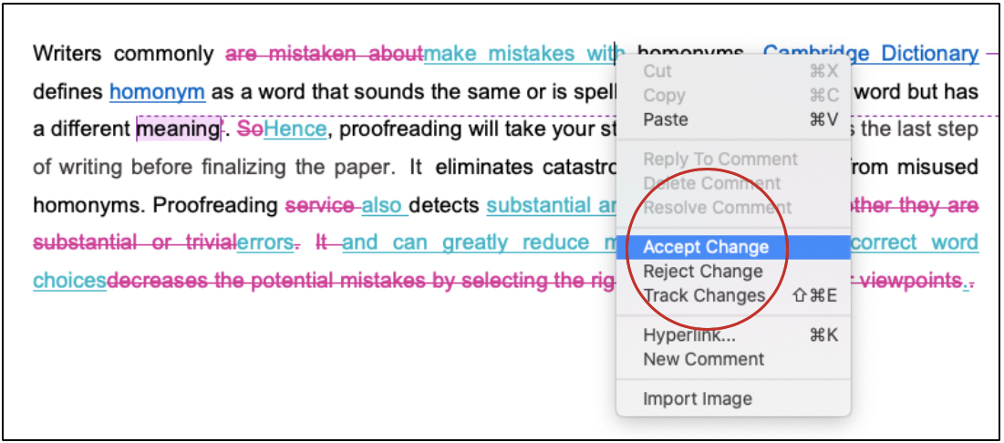Maintaining parallel structure prevents writers from making grammatically incorrect sentences and helps them to improve their writing styles. Although lack of parallelism is not always strictly incorrect, sentences with the parallel structure are easier to read and add a sense of balance to your academic writing. In this article, we will focus on what is parallel structure and how to use parallel structure in academic writing.

Academic writing demands correct use of grammar, good language, and proficiency in style. Because of so many rules and regulations, academic writing may seem like a lot of work, but if you practice well enough, you will understand a few tricks here and there that can help you get better at it.
Maintaining parallel structure prevents writers from making grammatically incorrect sentences and helps them to improve their writing styles. Although lack of parallelism is not always strictly incorrect, sentences with the parallel structure are easier to read and add a sense of balance to your academic writing.
If you are wondering how you can improve your academic writing, there are more than a few ways to do it. However, one of the best ways to get started is by understanding and mastering parallel structure. In this article, we will focus on what it is and how you can get better in academic writing by using parallel structure.
Parallel structure (also called parallelism or parallel construction) is when you use the same way of describing several things in a list. Parallel structure is the process of writing similar items in the same format and can be applied to a single sentence, a paragraph, or multiple paragraphs.
Not Parallel:
Nelson likes hiking, attends the festival, and to take afternoon naps.
Parallel:
Nelson likes hiking, attending the festival, and taking afternoon naps.
OR
Nelson likes to hike, attend the festival, and take afternoon naps.
Not Parallel:
His research assistant conducted the study using structural equation modeling and perform regression analysis.
Parallel:
His research assistant conducted the study using structural equation modeling and performing regression analysis.
The reason why parallel structure is practiced is that it helps you avoid grammatical errors while at the same time helping you improve your writing style drastically. There are no strict rules which mention that non-parallel structuring is wrong, but using parallel structure helps your writing to seem more balanced and makes it easier to read.
Now that we understand what parallel structures are, we will now move on to how you can detect a non-parallel structure and convert it to parallel. Let us begin!
To begin with, you need to locate the parallel structures first. To do that, you can look out for sentences and parts of your writing that have words, clauses, or phrases together as a series. Here are a few indicators that a sentence(s) is of parallel structure:
If the sentence contains coordinated conjunctions like ‘‘and.’’
Global warming has numerous impacts on nature, including climate change, melting of the ice caps, and heat island.
If the sentence contains correlated conjunctions such as ‘‘but also’’ and ‘‘not only.’’
He applied for a job at not only Company A but also at Company B and C.
The next thing to do is to recognize the area from where the parallelism begins. In more accurate words, you need to identify the first word that denotes the start of the parallelism. The reason why you need to do this is that:
The starting word will help you determine the form that the following words will take
Determining the spot where the parallelism begins can be flexible, so you need to be sure of where it begins
Once you have isolated the words that mark the beginning of the parallelism, you need to next analyze whether the words, phrases, or clauses in the sentences are of the same kind and type.
As mentioned earlier, when you recognize the first word, you will get an idea of what form the following words need to take. It is like the first word is the typesetter for the rest of the following clauses or phrases. Look at the following example:
Your schedule says that you work at the cafe on weekdays, volunteer at the library on Saturdays, and keep Sundays to yourself.
Here, the types of words show that they are all infinitive clauses. This will help you determine how you can form the following words to ensure that they are all parallel.
Now, do remember that merely recognizing the type of word the parallel structure has is not enough. You also need to ensure that you keep track of the plurality of the words in the sentence. If the starting word is plural, it would be better if the following words are also in plural form.
Same for the forms of verbs used in the sentence. The forms of verbs should not change in the sentence. If the sentence is following a present tense, ensure that the rest of the words follow the present tense.
Academic writing can be difficult when you begin with it, but with enough practice, you can become just as good at it. One piece of advice — always gets your word edited and proofread before you submit or publish it.
Editing and proofreading can easily help your work become better, including taking care of the parallel structure. If you cannot edit your work on your own, you can easily rely on professional services.
Best Edit & Proof expert editors and proofreaders focus on offering manuscripts with proper tone, content, and style of academic writing, and also provide an upscale editing and proofreading service for you. If you consider our pieces of advice, you will witness a notable increase in the chance for your research manuscript to be accepted by the publishers. We work together as an academic writing style guide by bestowing subject-area editing and proofreading around several categorized writing styles. With the group of our expert editors, you will always find us all set to help you identify the tone and style that your manuscript needs to get a nod from the publishers.

You can also avail of our assistance if you are looking for editors who can format your manuscript, or just check on the particular styles for the formatting task as per the guidelines provided to you, e.g., APA, MLA, or Chicago/Turabian styles. Best Edit & Proof editors and proofreaders provide all sorts of academic writing help, including editing and proofreading services, using our user-friendly website, and a streamlined ordering process.
Visit our order page if you want our subject-area editors or language experts to work on your manuscript to improve its tone and style and give it a perfect academic tone and style through proper editing and proofreading. The process of submitting a paper is very easy and quick. Click here to find out how it works.
Our pricing is based on the type of service you avail of here, be it editing or proofreading. We charge on the basis of the word count of your manuscript that you submit for editing and proofreading and the turnaround time it takes to get it done. If you want to get an instant price quote for your project, copy and paste your document or enter your word count into our pricing calculator.
Contact us to get support with academic editing and proofreading. We have a 24/7 active live chat mode to offer you direct support along with qualified editors to refine and furbish your manuscript.
Follow us on Twitter, LinkedIn, Facebook, Instagram, and Medium.
For more posts, click here.
This brief guide discusses what is parallel structure and how to use parallel structure in academic writing. To give you an opportunity to practice proofreading, we have left a few spelling, punctuation, or grammatical errors in the text. See if you can spot them! If you spot the errors correctly, you will be entitled to a 10% discount.
How to Determine Variability in a Dataset
14.10.2023
How to Determine Central Tendency
19.02.2023
How to Specify Study Variables in Research Papers?
14.01.2023
Population vs Sample | Sampling Methods for a Dissertation
14.01.2023
How to Ensure the Quality of Academic Writing in a Thesis and Dissertation?
04.12.2022
How to Avoid Anthropomorphism in Your Dissertation?
04.11.2022
How to Write a Research Methodology Section for a Dissertation and Thesis
07.08.2022
How to Write a Theoretical Framework for a Dissertation and Thesis?
05.08.2022
How to Write Literature Review for a Dissertation and Thesis
02.08.2022
How to Write a Dissertation and Thesis Introduction
31.07.2022

Writing academic essays is required for the successful completion of college, graduate school, and advanced research studies. Essay writing, as required in academia, requires much more preparation, effort, and skill than most students and academics actually do put in.
Continue Reading
Academic essay writing is an essential part of college life since writing essays is one of the most common assignments in colleges or universities. Some claim that it is an easy job while others assert it is very challenging. International students, particularly, find the task very compelling. No doubt it is a challenging issue because one has to devote considerable time to studying, reading, and examining the evidence. That requires self-sacrifice to learn how to write an academic essay. Although it seems challenging at first, it will get easier with practice and by following the steps detailed in this article.
Continue Reading
For writers starting, paraphrasing might seem quite a difficult thing to master. However, everything can become better with practice and some good advice. Therefore, if you are getting into the world of academic writing and want to know how to paraphrase like a pro, we have a few tips that you might find helpful. This article discusses the basic steps of successful paraphrasing.
Continue Reading
Academic writing is the type of writing style that requires a lot of attention to details, rules, and regulations. Mainly used for, as you might have guessed, academic purposes, it is one of the most common writing styles for professional works. However, as regulated and strict it is, it is also easier to make mistakes here. One such very common mistake that happens all the time for several researchers is sentence structuring. Sentence structuring has always been a little tricky, academic writing or not. That is why a great emphasis is made on them during the editing and proofreading phases. This article discusses the most common sentence structuring mistakes and how you can avoid them.
Continue Reading
Blog writing is an effective way to share your knowledge and ideas with your target group. Here you can dive deep and talk about your favorite topics, showcase your expertise and attract an audience or readers interested in your work. However, creating a perfect blog post can sometimes get overwhelming – from choosing the right topics to selecting the proper format for your articles to picking images that generate interest and engagement, it's no less than a task.
Continue Reading